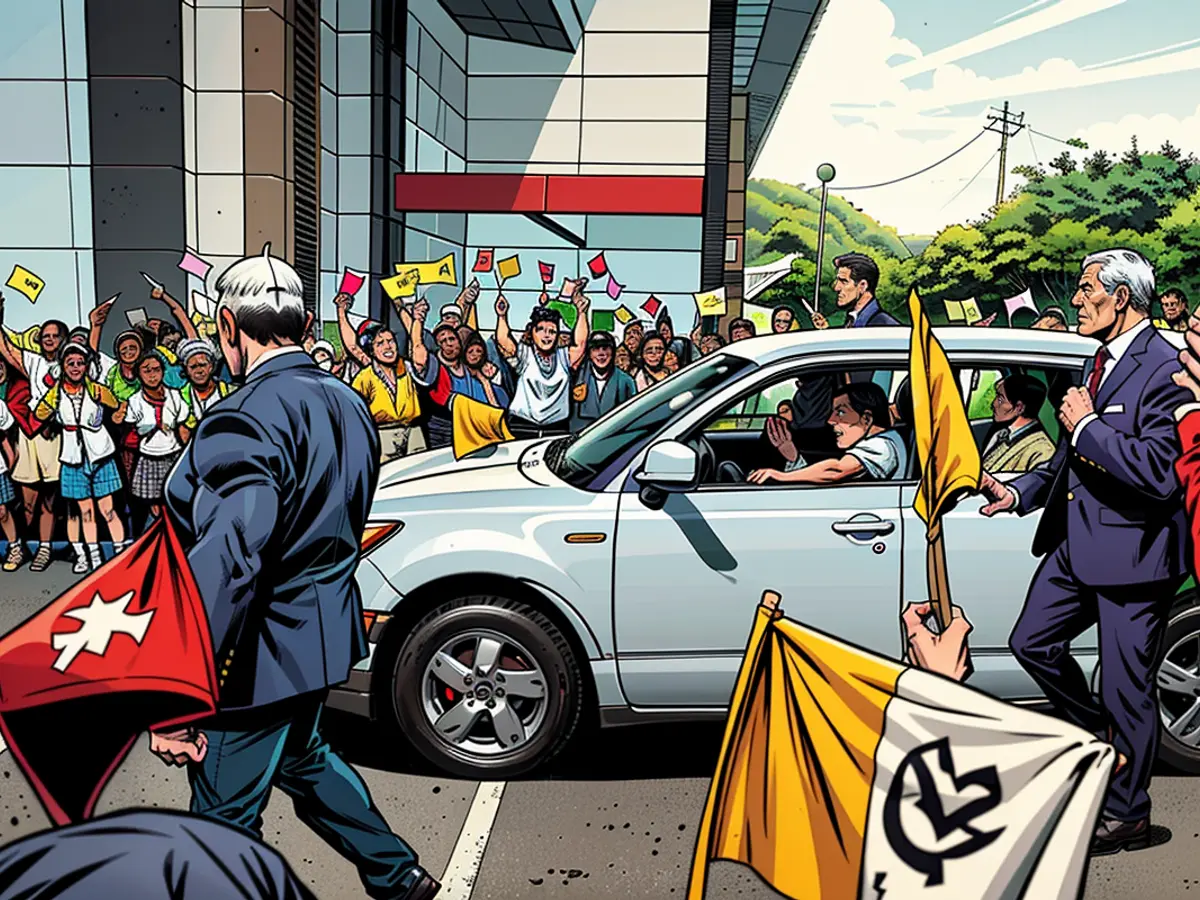Pope Francis journeys to secluded region of Papua New Guinea, shifting focus of Asia tour towards underserved populations
In chatting with religious leaders in Port Moresby, he urged them to concentrate on the "outskirts" of their nation and those residing in the most disadvantaged urban areas.
He emphasized the church's dedication to aiding those who have been harmed "mentally and physically" due to "discrimination and superstition." As per Human Rights Watch, Papua New Guinea is among the world's most hazardous places for females or girls, due to high levels of sexual violence.
The 87-year-old is currently undertaking his longest journey during his papal tenure – a strenuous 12-day visit to four countries in Southeast Asia and the South Pacific, which includes East Timor and Singapore.
Francis delivered his speech at the Shrine of Mary Help of Christians church, where the Catholic community performs various charitable and educational tasks.
Previously, he had visited the Caritas Technical Secondary School, a school for disadvantaged females, as well as those associated with the "street ministry" and "Callan services," which support the poor and those with disabilities.
His visit to the school, which offers educational chances for females, was noteworthy due to the discrimination and violence suffered by women in Papua New Guinea. At the shrine, Francis also listened to remarks from two women who were part of church ministry.
The pope also spoke spontaneously during his speech, emphasizing twice that bishops and priests in Papua New Guinea should adopt the "style of God," which is "closeness, tenderness, and compassion."

At the conclusion, he greeted the crowd outside the church and, speaking in English, thanked them for their patience before blessing them. He also joked with them to "pray for me, and not against me."
Expedition to Papua New Guinea's remote region
The following day, a military aircraft operated by the Royal Australian Air Force transported Pope Francis to one of the most secluded regions of Papua New Guinea.
CNN was among the media that accompanied Francis on his trip to Vanimo, the northwestern tip of the country, a location without running water or electricity.
The military aircraft – a C130 – transported vital supplies such as medicines, clothing, toys, and school instruments.
Upon his inauguration, Pope Francis stated that the cardinals had chosen someone from the "ends of the Earth." During his visit to Vanimo, more than 8,077 miles (13,000 kilometers) from Rome, the pope was putting his "ends of the Earth" philosophy into practice, showcasing his vision for a Catholic Church that serves the "peripheries."

And Francis seemed content and at ease during his time in Vanimo.
An estimated crowd of 20,000 gathered on a lawn opposite Holy Cross Pro-Cathedral, music playing as they waited for the pope's arrival. They cheered when he arrived on stage and cheered again when the pope put on a feathered headdress presented to him.
In the crowd, individuals had lined up plastic water bottles, olive oil, and salt so they could present them to the pope for his blessing. Many had traveled long distances on foot to be present, with Vanimo mainly accessible by plane or boat.
After meeting with local Catholics, the pope visited a school managed by Argentine missionaries that assists orphaned children. Pope Francis was invited to Vanimo by one of the missionary priests, and while there, they served him mate, the Argentinian tea.
Sister Daisy Anne Lisania Augustine, who works for the bishops of Papua New Guinea and was in Vanimo for the visit, said the Catholic leader had witnessed a side of the country that is "primarily unheard of," and that people in the area rarely get to see such a prominent leader.
The pope's journey extended to various countries in Southeast Asia and the South Pacific, demonstrating the Vatican's commitment to aiding those in need across the world. Despite being among the world's most dangerous places for females, Papua New Guinea was one of the destinations on this journey, highlighting the church's dedication to reaching out to the most vulnerable communities around the globe, including those in Asia.








